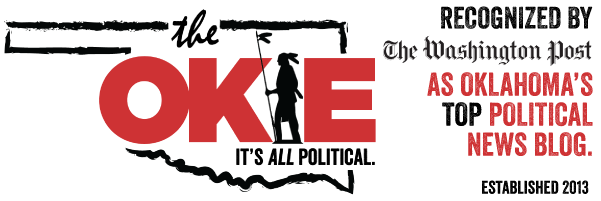Hickman OpEd: ‘Better Financial Management’
The following commentary ran in the December 29th issue of the Oklahoma Economic Report…
Better financial management
By State House Speaker Jeff Hickman
Another legislative session is upon us, and House members are drafting legislation intended to make an even better Oklahoma.
One of the first questions a legislator asks before putting pencil to paper is: What will the budget situation be this session? Considering the tight budget constraints the Legislature had to work with last session, available revenue will be weighed heavily against what can be accomplished.
We see it in the papers and hear it in speeches that our economy is strong and booming. This is absolutely true. Because of pro-business policies, our unemployment rate is 4.7 percent and Oklahoma is now the fourth fastest growing economy in the nation. Every time we have methodically and conscientiously cut taxes, we have seen jumps in revenue to the point that we are now seeing record revenue collections.
So if our economy is so strong, why the tight budget?
The answer is complex, but there are places lawmakers can look to give ourselves a little more wiggle room. Of the roughly $10 billion in funds Oklahoma raises through state taxes, fees, investments and other sources, the Legislature only appropriates about $7 billion. The other $3 billion goes to dedicated funds or what some like to call “off the top” spending.
The state is bound by statute to direct that money to literally dozens of specific programs and projects. Many of these projects are of the highest priority. Due to direct funding methods currently in statute, Oklahoma’s roads and bridges are being rapidly repaired and expanded to accommodate our citizens and help commerce flow through our state more efficiently.
The Teachers’ Retirement fund is improving and trending towards solvency in the future. Oklahoma’s
Promise college scholarships are helping secure a more educated and skilled Oklahoma workforce.
These are worthy projects, and the Legislature must be cautious to ensure these missions can be completed.
However, it may be time to evaluate all of the many dedicated funds to determine whether they still fulfill a modern goal. At the very least, lawmakers should consider more flexibility when drafting future legislation regarding dedicated funds.
Dedicated funds can create a reliable funding source, give the budget process some predictability and create significant political support, but this must be thoughtfully compared against future revenue fluctuations and possibly hindering future Legislatures from having the power to fix serious budget problems if they arise.
Another area the Legislature must examine more closely is the $1.7 billion in tax credits, incentives
and exemptions. There is no doubt that credits and incentives play an essential role in making Oklahoma economically competitive.
However, it may be time for the Legislature to create a fair and reasonable system that helps determine whether an incentive is truly sparking economic growth and creating stability in the market, or simply keeping certain entities alive that are dwindling or unable to stand on their own accord.
Tax credits and incentives can be viewed as another form of investing the Oklahoma taxpayer’s money. It’s time to begin making those decisions based on reliable evidence and which incentives have the greatest immediate and long-term results. Neither tax credits nor dedicated funding constraints are easy issues to tackle, but if addressed, our state stands to benefit greatly.
Oklahomans enjoy a healthy job market from a booming private sector, and they should also enjoy a healthy state government that works to invest their hard-earned tax dollars conservatively and wisely. This session, the House will continue working hard to ensure Oklahomans have such a government and can continue to prosper.

